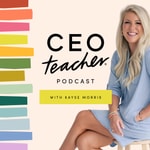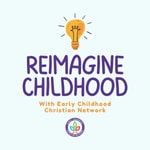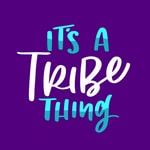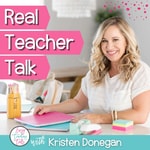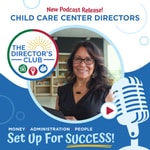Elevating Early Childhood – Détails, épisodes et analyse
Détails du podcast
Informations techniques et générales issues du flux RSS du podcast.
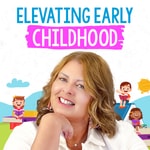
Elevating Early Childhood
Vanessa Levin
Fréquence : 1 épisode/13j. Total Éps: 118

Classements récents
Dernières positions dans les classements Apple Podcasts et Spotify.
Apple Podcasts
🇺🇸 États-Unis - educationForKids
03/08/2025#100🇺🇸 États-Unis - educationForKids
01/08/2025#71🇨🇦 Canada - educationForKids
31/07/2025#94🇬🇧 Grande Bretagne - educationForKids
31/07/2025#99🇺🇸 États-Unis - educationForKids
31/07/2025#58🇨🇦 Canada - educationForKids
30/07/2025#73🇬🇧 Grande Bretagne - educationForKids
30/07/2025#90🇺🇸 États-Unis - educationForKids
30/07/2025#64🇨🇦 Canada - educationForKids
29/07/2025#65🇬🇧 Grande Bretagne - educationForKids
29/07/2025#77
Spotify
Aucun classement récent disponible
Liens partagés entre épisodes et podcasts
Liens présents dans les descriptions d'épisodes et autres podcasts les utilisant également.
See all- https://www.pre-kpages.com/listen/
110 partages
- https://www.pre-kpages.com/
101 partages
- https://amzn.to/3yo5aA1
98 partages
- https://amzn.to/3m2tGxA
4 partages
- https://amzn.to/2ZdJ6X8
4 partages
- https://youtu.be/7DjpyzuTuCY
1 partage
- https://youtu.be/1i1NnzPo7Xs
1 partage
- https://youtu.be/W28h5NMz_nw
1 partage
Qualité et score du flux RSS
Évaluation technique de la qualité et de la structure du flux RSS.
See allScore global : 58%
Historique des publications
Répartition mensuelle des publications d'épisodes au fil des années.
Working with Challenging Families in Preschool and Pre-K
Épisode 114
mardi 20 août 2024 • Durée 08:19
Easing Separation Anxiety on the First Day of Preschool
Épisode 113
lundi 5 août 2024 • Durée 08:34
Hey teachers! Let me ask you a question, do you have “schoolmares” – or nightmares about the first day of school, long before the first day?
It's only natural, because facing the unknown can be scary, it’s only natural.
And each new school year brings many unknowns for both teachers and our little learners.
Welcome to another episode of "Elevating Early Childhood!"
I'm your host, Vanessa, and today we're tackling a topic that many of us face at the start of every school year: separation anxiety.
Yes, that moment when the parents or caregivers leave and the tears start flowing. We've all been there, right?
In today's episode of Elevating Early Childhood, I'm sharing my top 3 tips to help teachers (and families) ease separation anxiety.
Trust me, by the end of this episode, you'll feel ready to face the first day of school with confidence!
Before we can talk about it, let's define exactly what the term "Separation Anxiety" means so we're all on the same page.
You see, young children can become very fearful when they experience a new environment for the first time.
And when you add that they may be separated from their families for the very first time into the mix, it adds to those feelings of being fearful and anxious.
So, the definition of separation anxiety is the fear and anxiety of being apart from family members or caregivers is called separation anxiety.
Separation anxiety is a natural and normal response for young children.
It's their way of saying, "Hey, I'm not so sure about this new place without my family members."
So, how can we, as teachers, help ease this anxiety and make the transition smoother for everyone involved?
Here are my top three tips.
Tip #1: Help Guide Parents
One of the best ways to help our little learners feel less anxious is to help guide their caregivers' behavior.
Because some parents and caregivers might feel just as anxious about leaving their child as the child does about being left.
And this anxiety can be contagious! So, it's crucial for families to talk with their children about how school is a fun and safe place.
My favorite, and most effective way happens before the school year even starts, by hosting a Parent Orientation/ Meet the Teacher/ Back to School type of event.
You can use this time to teach parents how to talk positively about school.
Share examples of phrases they can use when talking with their children, like, "You're going to have so much fun at school today!" or "I can't wait to hear about all the new things you learn!"
Encouraging parents to stay calm and positive can help set the tone for their child's first of school.
One way to help parents feel more calm is to have all their burning questions about you (the teacher) and school answered.
For some parents, this may be their first experience sending a child off to school.
One way you can do that is by having all the answers to their questions ready to go on a single sheet of paper (or digitally if you prefer).
Of course, your smiling face and welcoming demeanor during the event will go a long way in ensuring parents feel comfortable leaving their child with you.
You're also going to want to remind caregivers to keep their goodbyes short and sweet.
A quick hug, a big smile, and a confident, "I'll see you soon!" can make a world of difference.
The longer they linger, the more anxious the child might become.
Remember, it's all about confidence and positivity!
Tip #2: Create a Visual Daily Schedule
My next tip is all about consistency and routine.
Young children, especially those who are three to five years of age, crave predictability.
And one of the very best ways to provide this is by creating a daily schedule with visual picture cues.
A visual schedule helps children understand what to expect throughout the day.
When they can see the sequence of events, it reduces uncertainty and helps them feel more calm and secure.
For instance, having pictures that show activities like circle time, snack time, center time, can be very reassuring.
When a child is feeling anxious, gently guide them to the schedule and talk them through it.
Say something like, "Right now, we're having circle time. Next, we'll go to the playground, and then it'll be snack time. See? We'll have lots of fun, and before you know it, it'll be time to go home!" This way, they can see the structure of their day and know that the time apart from their caregivers is only temporary.
Tip 3: Create a Calm and Welcoming Classroom Environment
Finally, let's talk about the classroom environment.
Creating a calm and welcoming space is key to easing a child's separation anxiety.
Start your day with consistent routines and rituals that help children feel safe and secure.
One simple yet powerful ritual is greeting each child at the door with a choice, such as the way they would like to be greeted. Simple things like a smile, a high-five, or a handshake can be helpful.
This personal connection can make them feel valued and ready to start their day.
Inside the classroom, your environment is going to be inviting and child-friendly.
Soft lighting, a cozy reading area, soothing natural colors, and familiar items like a family photo can all contribute to a sense of comfort.
After the children enter the room, invite them to find their name cards (with photos) and place them in a pocket chart to show that they are "here" at school.
This small task gives them a sense of ownership and belonging.
You could also sing a welcome song to bring everyone together and set a positive tone for the day.
And let's not forget the end of the day, closure is just as important as the beginning of the day.
Providing closure with a good-bye song or ritual can help children feel a sense of completion and look forward to coming back.
"See Ya Later Alligator" is always a hit!
So there you have it — three tips to ease separation anxiety for your preschoolers on the first day of school.
Remember to guide parent behavior, create a visual daily schedule, and foster a calm and caring classroom environment.
These strategies can make a huge difference in helping your little learners feel more secure and excited about school.
If you liked this episode, or any of my others, please consider subscribing, commenting, and smashing that thumbs up button.
Let's support each other in making the first day of school a positive and joyful experience for everyone involved.
Until next time,
I'm Vanessa Levin
Onward and Upward!
Teach Smarter: Literacy Strategies for Early Childhood Teachers
Feeling Overwhelmed by All the "Non-Teaching" Things?
Épisode 104
mardi 11 juillet 2023 • Durée 23:27
Science of Reading: What Preschool Teachers Should Know (Part 2)
Épisode 14
lundi 30 août 2021 • Durée 28:39
Picking up from last week's episode, we continue on today with my discussion with fellow preschool educator, Allison McDonald, about the Science of Reading.
In the last episode of Elevating Early Childhood, Allison and I discussed the science of reading, the importance of oral language development, and how you can help your students create a foundation for literacy.
Today, we pick up again and discuss even more exciting (and fun) subjects, such as the importance of being intentional with your teaching (yes, it's possible to do that in preschool!), if sound walls are really necessary, the difference between phonemic awareness and phonological awareness, and a bunch of other great stuff!
So, without further ado, let’s get to it!
Key Takeaways:
Picking up from last week’s discussion (00:00)
The importance of being intentional with your teaching (02:00)
What are articulatory gestures? (05:16)
Do you really need sound walls in pre-k? (07:36)
The difference between phonemic awareness and phonological awareness (11:18)
The Science of Reading’s more controversial parts (14:33)
A quick summary of our discussion (21:31)
Additional Resources:
- Visit our website to find tons of pre-K teaching resources here.
- Get my book “Teach Smarter: Literacy Strategies for Early Childhood Teachers”.
- Learn more about my exclusive mentorship program, “Teaching Trailblazers”.
- Check out Allison’s latest book, Everyday Preschool.
- Check out the book we based our discussion on here.
Elevating Early Childhood is an early education podcast dedicated to helping Pre-K, Preschool, and Kindergarten teachers teach better, save time, and live more.
If you enjoy the podcast, please follow, rate, and leave a review on your favorite podcast platform.
--
Onward & Upward!
Teach Smarter: Literacy Strategies for Early Childhood Teachers
Science of Reading: What Preschool Teachers Should Know
Épisode 13
lundi 23 août 2021 • Durée 30:24
What is the Science of Reading? And what should preschool teachers know about it?
In this week's episode of Elevating Early Childhood, I answer these two questions and more.
But I won't be doing this alone!
Yes friends, this is an interview episode! And in it, I will be discussing this hot topic with the lovely Allison McDonald.
Allison is the creator and founder of the early childhood website No Time for Flash Cards. She's also an author, a mom, and a rockstar early childhood educator!
Today, she and I will be discussing all things Science of Reading and what early childhood professionals need to know.
Are you ready?
Let's dive in!
Key Takeaways:
Discussing the Science of Reading (00:00)
Meet Allison (00:42)
Shifting the Balance: 6 Ways to Bring the Science of Reading into the Balanced Literacy Classroom (05:28)
The importance of oral language development (07:00)
Why you should be more intentional (11:19)
The importance of building background knowledge (14:46)
Moderate planning is okay (19:20)
Phonological awareness and phonemic awareness are key (20:47)
The four factors of future reading success (25:12)
Additional Resources:
- Visit our website to find tons of pre-K teaching resources here.
- Get my book “Teach Smarter: Literacy Strategies for Early Childhood Teachers”.
- Learn more about my exclusive mentorship program, “Teaching Trailblazers”.
- Check out Allison’s latest book, Everyday Preschool.
Elevating Early Childhood is an early education podcast dedicated to helping Pre-K, Preschool, and Kindergarten teachers teach better, save time, and live more.
If you enjoy the podcast, please follow, rate, and leave a review on your favorite podcast platform.
--
Onward & Upward!
Teach Smarter: Literacy Strategies for Early Childhood Teachers
Do You Need to Add Directed Drawing to Your Pre-K Curriculum?
Épisode 12
lundi 16 août 2021 • Durée 22:06
What does it take to teach preschool children how to draw? I get asked this question a lot, so I thought why not share my answer with all my listeners?
Yes guys, you've guessed it, it's another "Calm Down Corner Special" episode!
If you've ever wondered "Is directed drawing right for my class?", then this episode is the right one for you.
A few years ago, directed drawing became a trend on the internet, and as a result, many pre-k educators started asking themselves if they should be adding this activity to their preschool curriculum.
My answer? I personally think it’s not a very good idea.
Why is that?
Well, you might want to listen to this episode to find out the answer.
So, what are you waiting for?
Let's get to it!
Key Takeaways:
- Is directed drawing right for my class? (00:00)
- Story time! (00:40)
- Fact #1: Learning to draw is a developmental skill (02:33)
- Fact #2: The ability to draw is tied to the child's fine motor skills (07:12)
- Fact #3: Motivation to draw or write is needed (07:41)
- Myth #1: It is our job as teachers to teach our students how to draw (10:20)
- Myth #2: Directed drawings make great bulletin board displays (15:54)
- Myth #3: Directed drawing is a great way to practice listening skills (16:55)
- Myth #4: You're not a good teacher unless you're doing directed drawing with your students (18:11)
- Myth #5: Parents love it (18:54)
Additional Resources:
- Visit our website to find tons of pre-K teaching resources here.
- Get my book “Teach Smarter: Literacy Strategies for Early Childhood Teachers”.
- Learn more about my membership program, “Teaching Trailblazers”.
- Get replay access to the 2021 Soar to Success Summit here.
- Learn more about creating the perfect Morning Message here.
--
Elevating Early Childhood is an early education podcast dedicated to helping Pre-K, Preschool, and Kindergarten teachers teach better, save time, and live more.
If you enjoy the podcast, please follow, rate, and leave a review on your favorite podcast platform.
--
Onward & Upward!
Teach Smarter: Literacy Strategies for Early Childhood Teachers
How to Set Up Your Preschool Library Center (On a Shoestring Budget!)
Épisode 11
lundi 9 août 2021 • Durée 22:43
Do your kids love visiting your preschool library center?
For many pre-k teachers, getting children interested in books and reading can be very difficult. And there are various reasons why that is so...
The kids aren’t interested…
They’re mistreating the books...
And very often, we’re not given the adequate resources to create a proper classroom library!
So in this week’s episode, I’m going to provide a solution for each of these challenges and share some proven practices for creating an exceptional preschool library center your kids will adore.
By applying these techniques, you’ll teach your kids to love books and handle them properly while designing an inviting and organized classroom library.
And you can do all of it on a shoestring budget!
All that and more on this week’s episode of Elevating Early Childhood!
Key Takeaways:
- Do your kids love going to your preschool classroom’s library center? (00:00)
- The most common library center challenges for pre-k teachers (00:51)
- Why children mistreat books (and how to teach them not to) (02:13)
- How to teach preschool children to love books and reading (06:27)
- Is having too many books in your preschool library center a bad thing? (11:01)
- The secret to making your preschool library center more inviting (11:53)
- An excellent system for teaching kids how to put books back where they belong (13:31)
- How many books should your preschool library center have? (15:19)
- Best methods for creating a fantastic library center on a low budget (17:37)
- Resources to help you create a top-notch library center! (blog post + book-handling skills kit + learning centers essential guide) (21:00)
Additional Resources:
- Visit our website to find tons of pre-K teaching resources here.
- Get my book “Teach Smarter: Literacy Strategies for Early Childhood Teachers”.
- Learn more about my membership program, “Teaching Trailblazers”.
- Get your 2021 Soar to Success Summit pass here.
- Check out our Preschool Classroom Library Center blog.
- Get our Book Handling Skills Kit here.
- Download our FREE Center Essentials Guide.
--
Elevating Early Childhood is an early education podcast dedicated to helping Pre-K, Preschool, and Kindergarten teachers teach better, save time, and live more.
If you enjoy the podcast, please follow, rate, and leave a review on your favorite podcast platform.
--
Onward & Upward!
Teach Smarter: Literacy Strategies for Early Childhood Teachers
My First 10 Days of School Tips and Lesson Plans for Your Preschool Classroom
Épisode 10
lundi 2 août 2021 • Durée 24:03
Every single year, I get questions about the first days of school.
And so, I thought, why not have an episode about it? After all, that first day of school is a pretty big deal, not just for the students, but also for professional educators like you.
That is why I’ve created a free printable lesson plan to go along with the episode! I’ll also explain how to use it, so make sure you listen all the way through!
But, did you know? It's not just the first day of school that's crucial, it's actually the first ten days, and you should be focusing on them as much as you can.
Why is that?
Simply because those first ten days of school will set you and your students up for a successful year. And who doesn't want that?
So, how do you make sure they go as smoothly as possible?
Join me now to discover the answer to that question (and a few tips you can use to help yourself and your students transition smoothly into the school year).
Let's dive in!
Key Takeaways:
Focusing on the first ten days of school is important (00:00)
First, let's start with a quick story (00:56)
Tip #1: Always go for quality over quantity (03:38)
Tip #2: Less is more (04:27)
Tip #3: No product art in the first ten days (06:28)
Tip #4: Ignore the teacher next door (08:02)
Tip #5: Troubleshooting (10:26)
Why the first ten days of school are sacred (12:53)
Check out my free First 10 Days of School Lessons Plans (17:20)
Use engaging, fun books in those first ten days (19:54)
Additional Resources:
- Visit our website to find tons of pre-K teaching resources here.
- Get my book “Teach Smarter: Literacy Strategies for Early Childhood Teachers”.
- Learn more about my membership program “Teaching Trailblazers”.
- Get our free First 10 Day of School Lesson Plan here.
- Get your 2021 Soar to Success Summit pass here.
--
Elevating Early Childhood is an early education podcast dedicated to helping Pre-K, Preschool, and Kindergarten teachers teach better, save time, and live more.
If you enjoy the podcast, please follow, rate, and leave a review on your favorite podcast platform.
--
Onward & Upward!
Teach Smarter: Literacy Strategies for Early Childhood Teachers
My Favorite Emotions and Feelings Activities and Games for Preschool
Épisode 9
mardi 27 juillet 2021 • Durée 18:31
In today's episode of Elevating Early Childhood, I will be discussing something every professional educator needs to use in their classroom: Emotions and feelings activities for preschoolers.
As we all know, social skills are not innate. They're learned and honed through life, and of course, the earlier you start, the more social intelligence and emotional literacy you acquire.
This is why emotions and feelings activities are crucial.
In order to learn social skills, children have to first learn how to name and express their own feelings and emotions.
There are many ways to help them achieve that, and today, I'll be sharing a few of them with you.
After all, what better way to teach your students about their feelings than through some fun games?
So, without further ado, let's get to it!
Key Takeaways:
- It's never too early to introduce Bingo to your students (00:00)
- Using real photographs is a must (03:07)
- The memory-matching game (04:18)
- The feelings and emotions check-in chart (06:12)
- You can also use playdough mats (10:35)
- Bingo teaches self-regulation skills (12:01)
- The importance of emotional literacy (15:30)
Additional Resources:
- Visit our website to find tons of pre-K teaching resources here.
- Get my book “Teach Smarter: Literacy Strategies for Early Childhood Teachers”.
- Learn more about my membership program “Teaching Trailblazers”.
- Get our Feelings Chart for Preschool Kids here.
- Get your 2021 Soar to Success Summit pass here.
--
Elevating Early Childhood is an early education podcast dedicated to helping Pre-K, Preschool, and Kindergarten teachers teach better, save time, and live more.
If you enjoy the podcast, please follow, rate, and leave a review on your favorite podcast platform.
--
Onward & Upward!
Teach Smarter: Literacy Strategies for Early Childhood Teachers
My Top 3 Tips for the Perfect Calm Down Cozy Corner
Épisode 8
lundi 19 juillet 2021 • Durée 17:19
Hello everyone, and welcome back to another “Calm Down Corner” special.
In this week’s episode, I’ll be answering a couple of burning questions from some of my listeners, and also offering some tips on how to use your calm down cozy corner in the most effective way.
You see, many professional educators set up calm down corners (or Zen zones or calming areas) and find out —sometimes the hard way— that they’re not working as well as they wanted them to.
Why does that happen?
Simply because calm down cozy corners are not a magic pill and they don’t cure behavior. But, what they can be is an amazing tool, when used correctly.
Another reason they might not work is what’s in the calm down corner. If there’s too many tools in it, then you might find yourself with a few children who’d rather spend their whole time there (and that’s not what we want).
So, how can you solve these issues?
I answer this question in today’s episode of Elevating Early Childhood.
There’s a lot for us to explore, so let’s dive in!
Key Takeaways:
- Let's start with a question from one of our listeners! (00:00)
- Tip #1: Understand the true purpose of a calm down corner (01:25)
- Tools don't work if we think them as cures for behavior (02:04)
- Tip #2: Never put anything in your calm down corner that you haven't introduced to your whole class (06:57)
- Tip #3: Less is more (08:12)
- Answering another great question from a listener (09:09)
- What you can do differently to create a different outcome (11:12)
- Our goal as professional educators is not to get compliance from students (14:52)
- Some resources for you (15:26)
Additional Resources:
- Visit our website to find tons of pre-K teaching resources here.
- Get my book “Teach Smarter: Literacy Strategies for Early Childhood Teachers”.
- Learn more about my membership program “Teaching Trailblazers”.
- Get my freebie bundle by entering our Podcast Launch Giveaway.
--
Elevating Early Childhood is an early education podcast dedicated to helping Pre-K, Preschool, and Kindergarten teachers teach better, save time, and live more.
If you enjoy the podcast, please follow, rate, and leave a review on your favorite podcast platform.
--
Onward & Upward!
Teach Smarter: Literacy Strategies for Early Childhood Teachers
